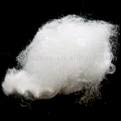Interviews
Hard work follows unveiling of Textile Policy - PRGMEA
17 Aug '09
13 min read

This is not a new initiative as several cluster projects have already been commissioned by the previous government but progress on these have been really slow because the government was not sure itself whether to let them continue or not and there was lack of funds. The industry also has not taken up this idea because of severe recession entrepreneurs were unwilling to relocate their units. It has also to be seen whether Rs 1 billion would be enough for such huge undertaking.
Skills Development:
The government plans to allocate Rs 1 billion during the current year for skill development initiatives.
Although no details are available as yet but the government need to come up with a clear roadmap as to how these skill development initiatives will be taken up otherwise the earmarked Rs 1 billion will simply go to waste.
Zero Rating of Exports:
Efforts will be made to identify all direct and indirect levies that add to the cost of doing business.
This has been a long standing demand of the industry and same issue was taken up in the last trade policy as well. Studies have shown that indirect taxes contribute around 11% of the total product costs but identification and separation indirect taxes will actually be very difficult in practice.
Tax free import of Machinery:
All textiles machinery imports will be zero rated.
This is a positive step but new machinery will only be imported once the current surplus capacity has been filled and once the textile sector again goes on the road to recovery.
Export House Scheme:
Small producers will get 1% drawback on levies and unadjusted taxes on sales to the export houses.
This is a very positive step for SME's who will now get some relief by selling unprocessed cloth to large exporters. Again, the government has to come up fast with the relevant circulars / SRO's so that this initiative is implemented as quickly as possible.
Sub-sector Initiatives
Fibers:
The persistent problem of contamination and trash content will be addressed
Premiums will be paid for increased production of contamination free graded cotton.
Measures will be introduced for production of long staple cotton for value added products and to meet domestic demand for high quality fabrics, including introduction of BT cotton on priority basis. Simultaneously, measures will be introduced for cultivation of organic cotton in new areas to increase value and production.
Necessary incentives will be provided to encourage investment in additional capacity in the MMF industries at competitive prices. NTC will determine required protection for such industries.
Measures will also be taken to develop other vegetable fibers (jute, flax etc), wool and sericulture for supporting diversification within the natural fibers.
It is indeed very welcoming to see the government focusing on development of non-traditional fibers but hard work is required in formulating a coherent strategy whereby the promised measures are taken up quickly and the problems are addressed.
Skills Development:
The government plans to allocate Rs 1 billion during the current year for skill development initiatives.
Although no details are available as yet but the government need to come up with a clear roadmap as to how these skill development initiatives will be taken up otherwise the earmarked Rs 1 billion will simply go to waste.
Zero Rating of Exports:
Efforts will be made to identify all direct and indirect levies that add to the cost of doing business.
This has been a long standing demand of the industry and same issue was taken up in the last trade policy as well. Studies have shown that indirect taxes contribute around 11% of the total product costs but identification and separation indirect taxes will actually be very difficult in practice.
Tax free import of Machinery:
All textiles machinery imports will be zero rated.
This is a positive step but new machinery will only be imported once the current surplus capacity has been filled and once the textile sector again goes on the road to recovery.
Export House Scheme:
Small producers will get 1% drawback on levies and unadjusted taxes on sales to the export houses.
This is a very positive step for SME's who will now get some relief by selling unprocessed cloth to large exporters. Again, the government has to come up fast with the relevant circulars / SRO's so that this initiative is implemented as quickly as possible.
Sub-sector Initiatives
Fibers:
The persistent problem of contamination and trash content will be addressed
Premiums will be paid for increased production of contamination free graded cotton.
Measures will be introduced for production of long staple cotton for value added products and to meet domestic demand for high quality fabrics, including introduction of BT cotton on priority basis. Simultaneously, measures will be introduced for cultivation of organic cotton in new areas to increase value and production.
Necessary incentives will be provided to encourage investment in additional capacity in the MMF industries at competitive prices. NTC will determine required protection for such industries.
Measures will also be taken to develop other vegetable fibers (jute, flax etc), wool and sericulture for supporting diversification within the natural fibers.
It is indeed very welcoming to see the government focusing on development of non-traditional fibers but hard work is required in formulating a coherent strategy whereby the promised measures are taken up quickly and the problems are addressed.
Popular News
Leave your Comments
Editor’s Pick
Dr. Michael Duetsch & Man Woo Lee
UPM Biochemicals and Dongsung Chemical
Folker Stachetzki
Brother Internationale Industriemaschinen GmbH
































-Ltd..jpg?tr=w-120,h-60,c-at_max,cm-pad_resize,bg-ffffff)





.jpg?tr=w-120,h-60,c-at_max,cm-pad_resize,bg-ffffff)
.jpg?tr=w-120,h-60,c-at_max,cm-pad_resize,bg-ffffff)






